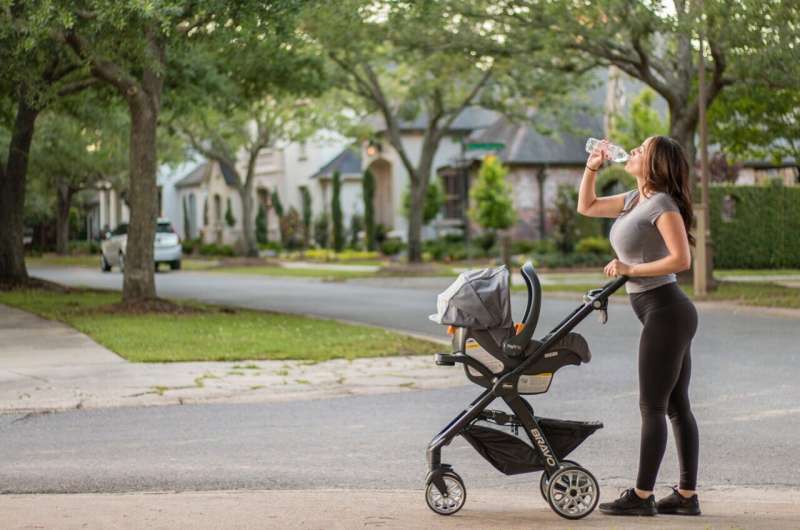
The COVID-19 pandemic has meant countless women are looking beyond harder-to-access, traditional postpartum depression (PPD) treatment options—like psychiatry and medication—and finding that physical activity could be key.
A new Western study suggests brisk walking—as little as 15 minutes a day—may be the answer for many women struggling with PPD, though some severe cases may still require traditional medical care.
Different from “baby blues,” PPD can cause severe mood swings, exhaustion, and even a sense of hopelessness. About 23 percent of new mothers in Canada experience some of these symptoms, while recent studies in Europe and Asia indicate this number has increased to nearly 30 percent during the COVID-19 pandemic.
This first-of-its-kind study, published today by Journal of Women’s Health, was led by Western undergraduate student Veronica Pentland and assistant professor Marc Mitchell from the Faculty of Health Sciences.
“PPD can have major effects on a woman’s mental health, but also on the child’s development,” said Pentland. “If you are depressed, it’s harder to care for yourself, and by extension, your child.”
The study, which analyzed data from five research projects involving 242 participants, recommends women walk at a “moderate intensity” 90 to 120 minutes per week to reduce PPD symptoms.
“Walking is fairly accessible and the great thing is, you can do it with your baby,” said Mitchell. “If you can get out three or four times a week for half an hour or even 15 minutes a day with your baby in a stroller, our findings show it could make a really big difference in how you feel.”
Mitchell, Pentland and their collaborators, including Faculty of Health Sciences professor Michelle Mottola, found walking resulted in clinically significant reductions in PPD symptoms and these improvements remained even three months after the mothers stopped their walking programs.
There are many long-standing barriers for accessing treatment, especially for mental health, including social stigma, marginalization and discrimination of racialized communities; and wait times and the ongoing global pandemic has only worsened the situation, said Pentland.
Source: Read Full Article